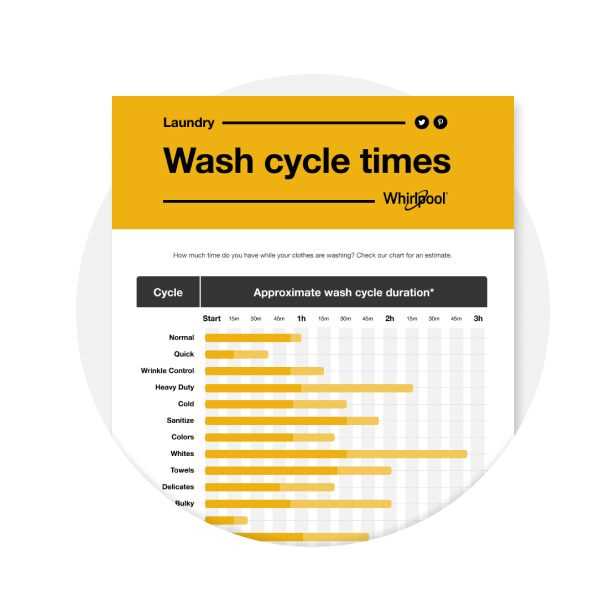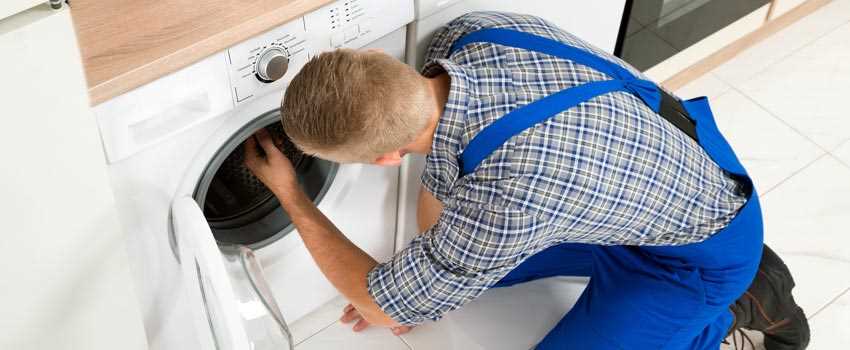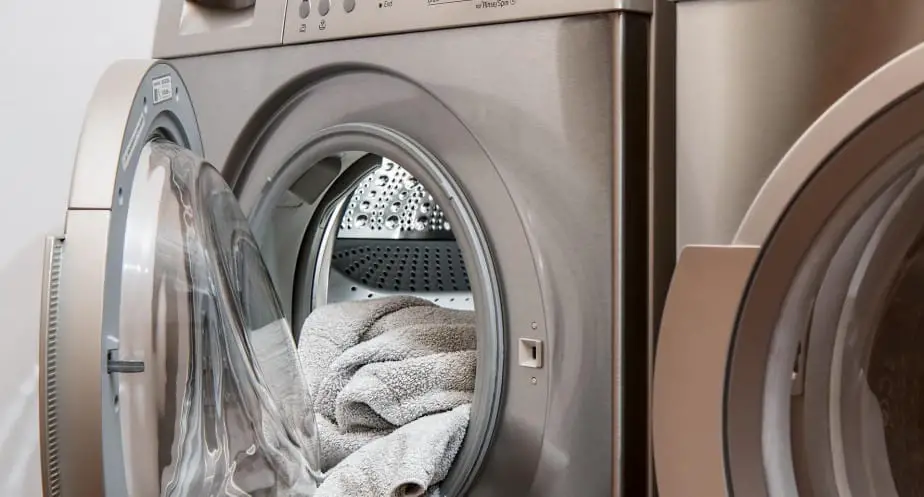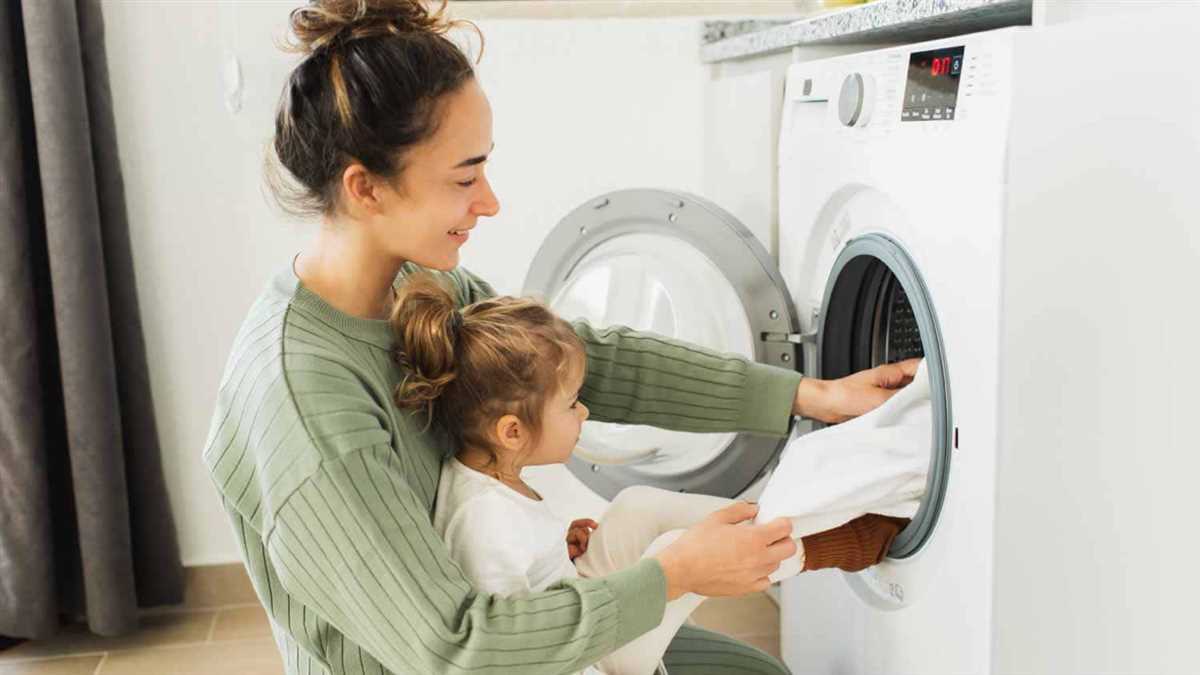




When investing in a washing machine, it’s important to consider its lifespan. After all, you want to make sure that your investment will last for years to come. But how long do washing machines actually last?
The average lifespan of a washing machine can vary depending on several factors, including the brand, model, usage, and maintenance. However, on average, a washing machine can last anywhere from 8 to 12 years. This means that if you take good care of your washing machine, it can provide you with many years of reliable service.
Regular maintenance is key to extending the lifespan of your washing machine. This includes cleaning the detergent drawer, descaling the machine, and removing any lint or debris from the filter. It’s also important to avoid overloading the machine, as this can cause unnecessary strain on the motor and other components.
Additionally, it’s worth considering the quality and reliability of the brand when purchasing a washing machine. Some brands are known for producing durable and long-lasting appliances, while others may have a shorter lifespan. Doing some research and reading customer reviews can help you make an informed decision.
In conclusion, while the average lifespan of a washing machine is around 8 to 12 years, proper maintenance and choosing a reliable brand can significantly extend its lifespan. By taking care of your washing machine and following the manufacturer’s guidelines, you can ensure that it will serve you well for many years to come.
Longevity of Washing Machines: A Detailed Overview
When investing in a washing machine, it’s important to consider its longevity. After all, you want a machine that will last for years to come. In this detailed overview, we will explore the factors that contribute to the lifespan of a washing machine and provide some tips on how to maximize its longevity.
Factors Affecting the Lifespan of Washing Machines
- Build Quality: The quality of materials and construction plays a significant role in determining how long a washing machine will last. Machines made with high-quality components are likely to have a longer lifespan compared to those made with cheaper materials.
- Usage Frequency: The more often you use your washing machine, the quicker it may wear out. High-frequency usage puts more strain on the machine, potentially causing parts to break or wear down faster.
- Maintenance: Regular maintenance, such as cleaning the drum, checking hoses, and replacing worn-out parts, can greatly extend the lifespan of a washing machine. Neglecting maintenance tasks can lead to inefficient operation and potential breakdowns.
- Water Quality: The quality of the water used in washing machines can also impact their lifespan. Hard water, for example, can cause mineral buildup and damage internal components over time.
- Brand and Model: The reputation and history of the brand, as well as the specific model of the washing machine, can also influence its longevity. Some brands are known for producing durable machines that last longer than others.
Tips for Maximizing the Lifespan of your Washing Machine

- Follow Manufacturer’s Instructions: Always refer to the manufacturer’s instructions for proper installation, usage, and maintenance of your washing machine. This will help ensure that you are using it correctly and taking the necessary steps to extend its lifespan.
- Avoid Overloading: Overloading the machine with too many clothes can strain its components and may lead to premature wear. Follow the recommended load capacity for your specific washing machine model.
- Use the Right Detergent: Using the appropriate detergent for your machine can prevent buildup and damage to its parts. Avoid using excessive amounts of detergent as it can create excess suds, leading to clogs and potential malfunctions.
- Keep it Clean: Regularly clean the drum, detergent drawer, and filters to prevent the buildup of dirt, lint, and residue. This will help maintain efficient operation and prevent potential issues.
- Address Issues Promptly: If you notice any strange noises, leaks, or other abnormalities during operation, address them promptly. Ignoring problems can result in more significant damage and reduce the lifespan of your washing machine.
Conclusion
The longevity of a washing machine depends on various factors, including build quality, usage frequency, maintenance, water quality, and the brand and model. By following proper usage and maintenance guidelines, you can maximize the lifespan of your washing machine and enjoy its benefits for many years to come.
Average Lifespan of Washing Machines
When investing in a washing machine, it’s essential to consider its average lifespan. Understanding how long a washing machine is likely to last can help you make an informed decision and plan for future replacements. While there are various factors that can affect the lifespan of a washing machine, here is a general guide to help you estimate its durability.
1. Brand
The brand of the washing machine can have an impact on its lifespan. Well-known and reputable brands often use high-quality materials and have a longer lifespan compared to cheaper, generic brands. It’s recommended to choose a trusted brand with a proven track record for durability.
2. Usage
The frequency and intensity of usage can also affect how long a washing machine lasts. If you use your machine often and for heavy-duty loads, it may experience more wear and tear, potentially shortening its lifespan. Following the manufacturer’s recommendations for usage and avoiding overloading the machine can help prolong its lifespan.
3. Maintenance
Regular maintenance and proper care can significantly extend the lifespan of a washing machine. Cleaning the drum, regularly checking and cleaning the filters, and ensuring the machine is level can all contribute to its longevity. Additionally, addressing any minor issues or repairs promptly can prevent them from escalating into major problems that could shorten the lifespan of the machine.
4. Water Quality
The quality of the water used in the washing machine can also impact its lifespan. Hard water with high mineral content can cause limescale buildup and other issues that may affect the machine’s performance over time. Using water softeners or using descaling agents periodically can help mitigate these problems and extend the lifespan of the washing machine.
5. Warranty
Some washing machines come with extended warranties, which can provide additional coverage and peace of mind. Checking the warranty details and understanding what it covers can give you an indication of the manufacturer’s confidence in the machine’s lifespan. Opting for a washing machine with a longer warranty may be worth considering, as it could indicate better durability.
Conclusion
While the average lifespan of a washing machine can vary depending on several factors, a well-maintained and reputable brand washing machine can typically last anywhere between 10 to 15 years. By considering the brand, usage, maintenance, water quality, and warranty, you can make an informed decision and maximize the lifespan of your washing machine.
Factors That Affect the Lifespan of Washing Machines
While the average lifespan of a washing machine is around 10-14 years, there are several factors that can affect how long your washing machine will last. These factors include:
- Usage frequency: The more often you use your washing machine, the more wear and tear it will experience. If you have a large family or do multiple loads of laundry every day, your washing machine may not last as long as one that is used less frequently.
- Quality: The quality of the washing machine itself can greatly impact its lifespan. Higher-quality machines are typically built to last longer and withstand more use and abuse.
- Maintenance: Proper maintenance is crucial to the longevity of your washing machine. Cleaning the machine regularly, checking hoses and connections for leaks, and ensuring that the drum is balanced can all help extend its lifespan.
- Water quality: The quality of water in your area can also affect the lifespan of your washing machine. Hard water, which contains minerals like calcium and magnesium, can lead to mineral buildup in the machine, reducing its efficiency and lifespan.
- Overloading: Overloading the machine with too much laundry can put excessive strain on its components and cause them to wear out faster.
- Proper use: Following the manufacturer’s instructions for proper use of the machine, such as using the appropriate amount of detergent and avoiding the use of harsh chemicals, can help prolong its lifespan.
Overall, taking care of your washing machine and using it properly can significantly extend its lifespan. Regular maintenance and addressing any issues promptly can help you get the most out of your investment.
Proper Maintenance Practices to Extend the Lifespan of Washing Machines
Regular Cleaning
One of the most important maintenance practices to extend the lifespan of washing machines is regular cleaning. This includes cleaning the detergent dispenser, filter, and the drum. Regular cleaning helps prevent the buildup of dirt, detergent residue, and limescale, which can affect the performance of the machine and potentially cause damage over time.
Using the Right Detergent
Using the right detergent is crucial for the proper functioning and longevity of washing machines. It’s important to follow the manufacturer’s instructions and use the recommended type and amount of detergent. Using excessive amounts of detergent can lead to excessive suds, which can damage the machine and reduce its lifespan.
Maintaining the Drum and Seals
Regularly checking and maintaining the drum and seals is essential to prolong the lifespan of a washing machine. Inspect the drum for any signs of damage or foreign objects that may have gotten lodged inside. Also, check the seals for any leaks or degradation. Promptly addressing any issues with the drum or seals can prevent further damage to the machine.
Avoid Overloading
Overloading the washing machine with too many clothes can put unnecessary strain on the machine and decrease its lifespan. It’s important to follow the manufacturer’s guidelines regarding load capacity. By avoiding overloading, the machine can operate more efficiently and effectively, leading to a longer lifespan.
Do Regular Maintenance Checks
Performing regular maintenance checks can help identify any potential issues before they become major problems. This includes checking for loose or damaged hoses, ensuring proper water supply and drainage, and inspecting the electrical connections. Regular maintenance checks can help catch problems early and prevent more costly repairs later on.
Protect against Hard Water
If you live in an area with hard water, it’s important to take steps to protect your washing machine. Hard water can lead to limescale buildup, which can affect the performance and lifespan of the machine. Using water softeners or descaling agents regularly can help prevent limescale buildup and extend the lifespan of your washing machine.
Follow the Manufacturer’s Instructions
Lastly, it’s important to follow the manufacturer’s instructions for proper use and maintenance of the washing machine. The manufacturer’s guidelines are designed to ensure optimal performance and longevity. By following these instructions, you can help extend the lifespan of your washing machine.
Overall, practicing proper maintenance techniques, such as regular cleaning, using the right detergent, maintaining the drum and seals, avoiding overloading, performing regular maintenance checks, protecting against hard water, and following the manufacturer’s instructions can significantly extend the lifespan of washing machines. These practices can help you get the most out of your washing machine and save you money in the long run.
Signs That Your Washing Machine Needs Repair or Replacement
-
Excessive Noise

If your washing machine is making loud or unusual noises during its operation, it may be a sign that it needs repair or replacement. This could indicate a problem with the motor, belt, or other internal components.
-
Leaking Water
Leaking water from your washing machine is a clear sign that something is wrong. It could be due to a faulty hose, pump, or a worn-out seal. If the issue is not resolved, it can lead to further damage to your machine or even cause water damage to your home.
-
Frequent Breakdowns
If your washing machine frequently breaks down or requires repairs, it may be time to consider replacing it. Constant repairs can become expensive, and a machine that is unreliable can cause frustration and inconvenience.
-
Failure to Spin or Agitate
If your washing machine is not spinning or agitating properly, it could be a sign of a problem with the motor, belt, or transmission. This can prevent your clothes from being cleaned effectively and may require professional repair.
-
Excessive Vibration and Movement
If your washing machine is excessively vibrating or moving during its cycle, it could indicate an imbalance. This can be caused by an uneven load or an issue with the internal suspension or leveling components. Ignoring this issue can lead to further damage to the machine.
-
Foul Smells
If your washing machine emits foul odors, it could be a sign of mold, mildew, or bacteria growth inside the machine. This can occur if the machine is not cleaned regularly or if there is a problem with the drainage system. These issues can affect the cleanliness of your laundry.
-
Old Age
If your washing machine is nearing or has exceeded its expected lifespan, it may be time to consider replacing it. Older machines are more likely to experience frequent breakdowns and require costly repairs. It is generally recommended to replace a washing machine that is 10-15 years old.
-
Increased Energy or Water Consumption
If you notice a sudden increase in your energy or water bills without any changes in your household usage, it could be a sign that your washing machine is not operating efficiently. Older machines may consume more energy and water than newer, more energy-efficient models.
-
Lack of Features or Technology
 Trending NowHisense 10 KG Front Load Washing MachineEnhanced energy efficiency and durabilityWith a 10 kg capacity and 15 washing programs, this machine is perfect for large households, featuring a quick wash option and superior inverter motor reliability.
Trending NowHisense 10 KG Front Load Washing MachineEnhanced energy efficiency and durabilityWith a 10 kg capacity and 15 washing programs, this machine is perfect for large households, featuring a quick wash option and superior inverter motor reliability.If your washing machine lacks features or technology that you desire, such as programmable settings, energy-saving options, or smart home integration, it may be worth considering an upgrade to a newer model that meets your requirements.
Tips for Choosing a Durable Washing Machine
When it comes to purchasing a washing machine, durability should be a top priority. A durable washing machine can save you money in the long run by lasting for many years without the need for repairs or replacement. Here are some tips to help you choose a durable washing machine:
1. Research Brands
Start by researching different brands known for producing durable washing machines. Look for customer reviews and ratings to get an idea of the overall reliability and longevity of the machines.
2. Consider the Build Quality
Pay attention to the build quality of the washing machine. Look for solid construction and high-quality materials. Machines with sturdy frames and durable drums are more likely to withstand regular use and last longer.
3. Check the Warranty
Make sure to check the warranty offered by the manufacturer. A longer warranty period usually indicates that the brand has confidence in the durability of their product. Look for warranties that cover both parts and labor.
4. Look for Energy Efficiency
Choose a washing machine that is energy efficient. Energy-efficient models not only help to reduce your carbon footprint but can also be more durable. They tend to have features like automatic load sensing and temperature control, which can help prevent excessive wear and tear on the machine.
5. Consider the Size and Capacity
Before making a purchase, consider the size and capacity that best suits your needs. A washing machine that is too small for your family’s laundry needs may result in overloading and increased strain on the machine, leading to a shorter lifespan.
6. Read User Manuals and Maintenance Guides
Take the time to read user manuals and maintenance guides provided by the manufacturer. Following the recommended maintenance procedures can help extend the lifespan of your washing machine.
7. Compare Prices and Features
Compare prices and features of different washing machines within your budget. While it’s important to consider the price, prioritize the durability and functionality of the machine over aesthetics or unnecessary features.
8. Seek Recommendations

Don’t hesitate to seek recommendations from friends, family, or trusted professionals. They may have personal experiences or insights that can help you make an informed decision.
By following these tips, you can make a well-informed decision and choose a durable washing machine that will provide you with years of reliable service.
FAQ
What is the average lifespan of a washing machine?
The average lifespan of a washing machine is around 10-13 years. However, this can vary depending on factors such as usage, maintenance, and the brand of the machine.
How can I make my washing machine last longer?
To make your washing machine last longer, it is important to follow proper maintenance practices. This includes cleaning the machine regularly, avoiding overloading it, using the appropriate amount of detergent, and checking and cleaning the filters. Additionally, it is recommended to have any issues or repairs addressed promptly to prevent further damage.
Is it worth repairing an older washing machine?
Whether it is worth repairing an older washing machine depends on the extent of the issue, the cost of the repair, and the age of the machine. In some cases, it may be more cost-effective to replace the machine if the repair cost is high or if the machine is approaching the end of its lifespan. However, for minor issues or newer machines, repairs can be a viable option to extend the lifespan of the machine.
What are some signs that my washing machine may need to be replaced?
Some signs that your washing machine may need to be replaced include frequent breakdowns and repairs, loud or unusual noises during operation, leaking water, inefficient cleaning or spinning, and a significant decrease in performance. If the machine is old and experiencing multiple issues, it may be more cost-effective to invest in a new machine rather than spending money on repairs.














